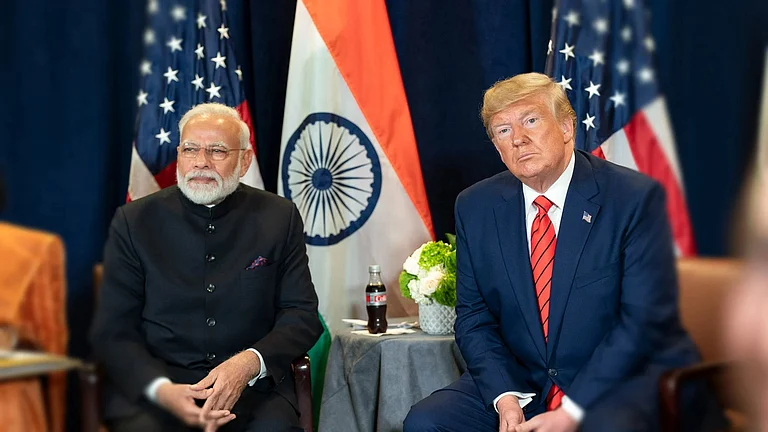According to the Outlook Toluna Youth Survey 2022—a first-of-its-kind study done across India—90% of the respondents thought that start-ups were a promising career option for them. Clearly, the rise and shine of Indian start-ups has fuelled the entrepreneurship buzz in India. The survey also found that traditional career choices, such as law, medicine, management or engineering, were almost neck and neck with new-age careers, such as app development, system analysing, entrepreneurship, fashion and sports among others—46% respondents chose the former, while 45% chose the latter.
The purpose of the survey, done by Toluna in partnership with Outlook, was to deep dive into how India’s youth feel about key topics, including freedom, investments, cinema and career.
The findings are based on a total of 1,804 interviews conducted in more than 40 cities across metros and non-metros, including Delhi, Mumbai, Chennai, Kolkata, Bengaluru, Hyderabad, Ahmedabad, Pune, Jaipur, Lucknow and Indore among others.
All interviews were conducted online using a standard, structured, self-filled questionnaire and the data was captured on the Toluna server. The interviews were conducted among the youth (defined as 18-35 years), who are part of the Toluna panel across genders, socio-economic classes and employment status.
The Business Buzz
Interestingly, 90% of the respondents thought that start-ups were a promising career option for them—a huge change fuelled by the start-up buzz and the maturing ecosystem. Generating employment, building a company, marketing innovative products and technologies, and contributing to nation building were found to be the prime motivation and goal behind starting up.
Of those choosing start-ups as a career, 90% were from east India, while 88% were from north and 89% from south and 88% west India. Those finding building start-ups as a lucrative career option, 92% were from the 31-35 year age bracket, signifying that entrepreneurship was a dream for even those in mid-career and not just among the younger lot, while 90% were in the 26-30 year age bracket, 89% were in the 22-25 year age bracket and 86% were in the 18-21 year age bracket. Interestingly, 91% women thought entrepreneurship was a suitable career for them, as against the men who were at 88%.

For 43% respondents, the prime motivation for opting for entrepreneurship was generating employment, while 42% opted for it to create one’s own company. Marketing innovative products and technologies and contributing to nation building were the primary driving factors for 37%. Thirty per cent opted for entrepreneurship because of monetary wealth and 25% wanted to take it up to avoid the monotony of a 9-5 job.
“Younger people are more risk tolerant as they tend to have fewer responsibilities. They believe that when you work for yourself, there is no glass ceiling, and the rewards are limitless. The younger generation does not care about pension and retirement benefits but instead want to focus on ‘now’. They get inspired by seeing the success stories of people who started with nothing but are now top entrepreneurs. Youngsters want autonomy and space, they like to be creative and start-ups provide that culture. For many, autonomy and creativity are more important than stability,” says Karan Gupta, an education consultant.
For 50% respondents in the 26-30 year age bracket, generating employment was the primary driving force behind entrepreneurship, while it was so for 38% in the 22-25 year age bracket. For 45% respondents in the 31-35 year age bracket, creating own company was the key motivation. Avoiding a monotonous 9-5 job was the principal driving force for opting for entrepreneurship among 20% in the 18-21 year age bracket.
In the 18-21 year age bracket, 37% felt contributing to nation building should be the end objective of starting your own company, while 48% in the 31-35 year age bracket felt that way. Making money was the end objective for 36% in the 31-35 year age group, 26% in the 18-21 year age bracket, 36% in the 26-30 year age bracket and 29% in the 22-25 year age bracket. Money does drive people, clearly.
Changing Trends
The survey also proved that traditional career choices though not falling back are fast losing their sheen among youngsters. Most of the youth are looking at new-age career choices in technology, start-ups, fashion and sports. As per the survey, women at 46% seemed more comfortable with conventional career options as against men at 44% men. New-age careers were chosen by 46% men and 44% women.

“New-age careers are growing year on year because of the huge amount of information that is available to the youth today. Industries are evolving quickly, and students are seeing jobs and career options available in non-traditional fields. Students and even parents are happy to embrace the attitude of ‘follow your dreams’ and ‘do what you are passionate about’. With more access to tools such as psychometric testing, students are beginning to learn what their strengths and weaknesses are and want to work in areas where their strengths are deployed and do not necessarily care if such areas are non-traditional work fields,” says Gupta.
At 49%, south India preferred conventional career choices the most, while new-age careers were most favoured in east India with 49%. Among those that favoured a new-age career, 49% belonged to the 18-21 year age bracket, while of those opting for a conventional career, 48% belonged to both 26-30 year and 31-35 year age brackets. In the new-age careers, 27% wanted to take up app developing and 20% entrepreneurship, as career options.
For some, like 21-year-old Rishi Kaushik (named changed on request), a student of Delhi Technological University, working with new-age companies may also be a stepping stone to starting his own business—also his biggest dream. But, coming from a family that has traditionally worked in either private or government sector, he is unsure of being able to start up on his own. “Working with a start-up is the closest I can get to starting innovative ventures. I know my parents will not be convinced if I tell them I want to start a business. So, maybe I will work with new tech companies once I finish education.”































